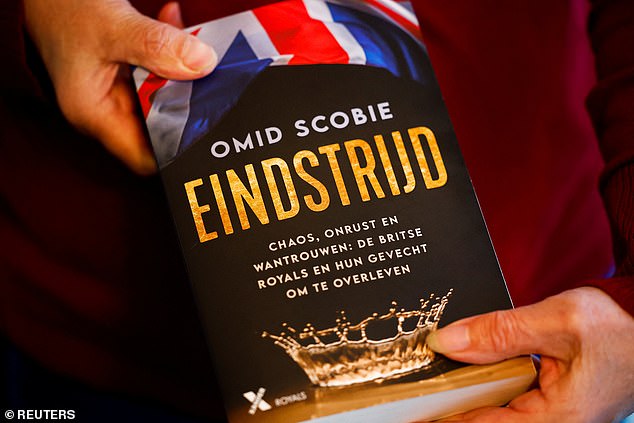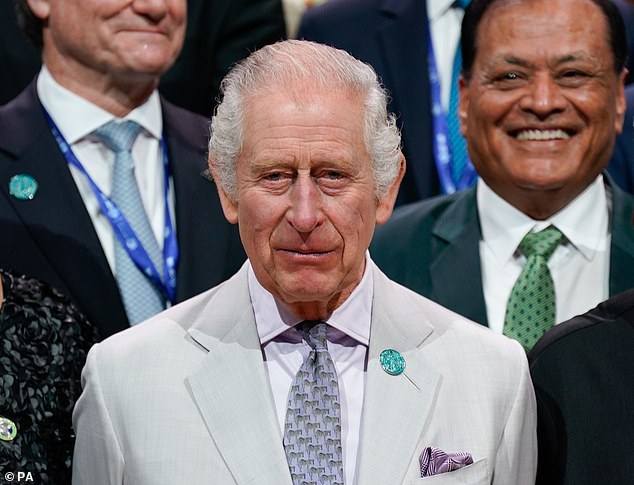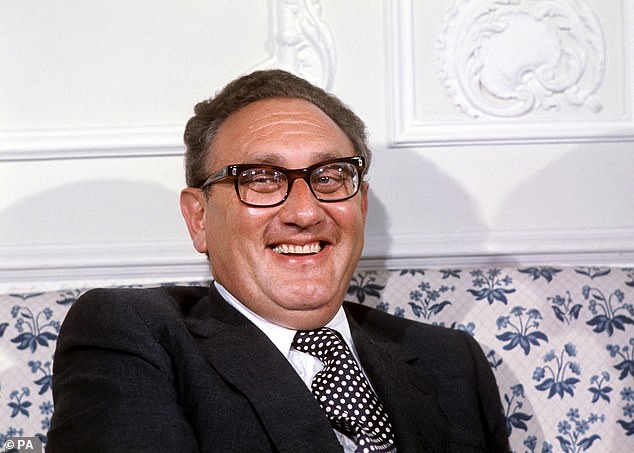DAILY MAIL COMMENT: Scobie’s shaky defence is lost in translation

Whenever it has come under attack the Royal Family has adhered to one enduring principle: ‘Never complain, never explain.’
After Charles and Kate were criticised in Omid Scobie‘s book for expressing ‘concern’ about Prince Archie‘s skin colour, they will find it hard to bite their lip.
After all, some accusations are so cruel, so unfair and so damaging it is almost impossible to stay silent.
Anyone who knows the Royal Family will find the racism accusation preposterous. The King and Princess have been unstinting champions of diverse communities.
Equally unedifying is the fact that there isn’t even a coherent account of this alleged incident. Harry and Meghan themselves can’t get their story straight.

The great mystery of the cosmos is: How did Scobie get the information? The Palace wouldn’t have leaked it, that’s for sure

Scobie blames translation errors for the names appearing ‘accidentally’ in the Dutch edition of Endgame

The Mail knew the book identified Charles and Kate, but considered it unfair to report what was effectively no more than unsubstantiated Windsor-bashing gossip
If Charles and Kate did ask about Archie’s complexion before he was born, wasn’t it just out of curiosity, not malice? Expectant parents up and down the land often hold such conversations. But such is their Himalayan sense of grievance, and rancour with the House of Windsor, the Sussexes will surely have assumed the worst.
Scobie blames translation errors for the names appearing ‘accidentally’ in the Dutch edition of Endgame. But can he be believed? Last night, the translator told the Mail: ‘The names were there in black and white.’
The Mail knew the book identified Charles and Kate, but considered it unfair to report what was effectively no more than unsubstantiated Windsor-bashing gossip.
However, after they were outed by Piers Morgan on TV, then by numerous newspapers – from the New York Times to The Times in London – we decided to publish. Given the wide dissemination of the names, not to have done so would be ludicrous.
The book cites a letter Meghan wrote to the King outlining her grievances. So the great mystery of the cosmos is: How did Scobie get the information? The Palace wouldn’t have leaked it, that’s for sure.
When Meghan sued The Mail on Sunday for printing details of a previous letter she had sent, she claimed it violated her privacy. If she or Harry leaked details of her correspondence with Charles (and we’re not for a moment saying they have), this would be seriously hypocritical.
It would also represent an escalation of hostilities with the Royal Family. If they hate the monarchy so much, why don’t the Sussexes give up their titles? Presumably because it would affect their earning power.
A giant of diplomacy
The extraordinary life of Henry Kissinger reads like the story of the 20th century.
He was a child of the Holocaust – fleeing Nazi persecution to America with his Jewish family. Yet he became the most powerful diplomat in US history, and a major figure during the turbulence of the Cold War.
The ex-Secretary of State advised 12 US presidents and knew every Chinese premier since Mao. It is hard to imagine anyone on today’s political stage ever having his vast experience… or eminent address book.
To his supporters, Kissinger was a master negotiator whose guile and intellect brought about détente with the Soviet Union, thawed relations with China and ending the 1973 Arab-Israeli conflict.
To his enemies on the Left, he was a ‘war criminal’. His role in intensifying the conflict in Vietnam, and willingness to shun democratic values if it meant halting the advance of communism, inspired loathing.

U.S. diplomat Henry Kissinger died at the age of 100 on Wednesday at his home in Connecticut after playing a key role in foreign policy in the United States
But his motivation was to protect Western freedoms. As a child of Nazi Germany, he understood the darkness of totalitarianism.
His greatest intellectual accomplishment was his bone-deep commitment to realpolitik. Foreign policy driven by emotion, he argued, invariably ended in disaster. Tony Blair’s catastrophic war in Iraq hammers home his point perfectly.
For all his flaws, Kissinger’s foreign policy legacy continues to shape the world we live in today. Without his influence, it would surely be a more dangerous one.




